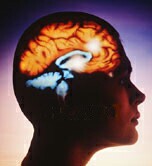No relationship between mental/physical activity, signs of disease in brain
FRIDAY, June 12, 2015 (HealthDay News) — Physical and cognitive activity don’t appear to prevent the brain from developing the biomarkers that are a hallmark of Alzheimer’s disease, a new study suggests. The report was published online June 10 in Neurology.
Keith Johnson, M.D., co-director of the Neuroimaging Core at the Massachusetts Alzheimer’s Disease Research Center and a professor of radiology at Harvard Medical School in Boston, and colleagues collected data on the current and lifetime physical and mental activity of 186 people without cognitive deficits. Their average age was 74. People in the study had positron-emission tomography and magnetic resonance imaging so researchers could gauge the amount of β-amyloid deposits in their brains. The scans also measured the brain’s metabolism and hippocampus volume. In addition, participants took tests to evaluate their cognitive skills.
The researchers found that those who kept their brains busy with stimulating mental activities had higher IQs and better cognitive performance compared with those who did not often take part in such activities, but found no relationship between mental or physical activity and signs of Alzheimer’s disease in the brain. Johnson told HealthDay that studies following people’s activities over a long period are needed to confirm these findings.
Despite the current results, Johnson said that a lifetime of physical and mental activity may help keep the brain sharper with age. He also stressed that these findings should not be taken as a reason to not keep mentally and physically active, since other studies have shown these can benefit the brain.
Copyright © 2015 HealthDay. All rights reserved.








